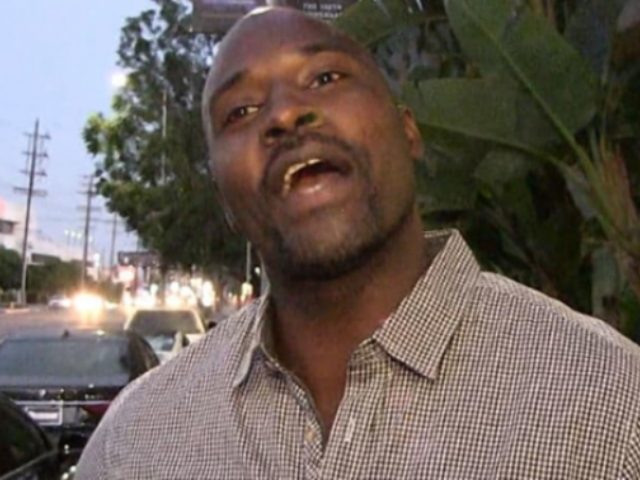On FS1’s Speak for Yourself, co-hosts Jason Whitlock and Marcellus Wiley lamented how they’re sometimes looked down upon because they don’t fit certain supposed black stereotypes.
Show producer Darnell Smith, who is also black, and grew up in Whitlock’s neighborhood, threw out a question to the hosts to start the segment:
“How do you guys deal with it when people say you don’t meet the black stereotype?” Smith asked.
Wiley, a Columbia University graduate who played played 10 years in the NFL, said the black community has cultural “gatekeepers.”
“Our culture has gatekeepers, man,” Wiley said. “Black expression is limited by these gatekeepers, ‘You can’t do this, you can’t do this, oh that ain’t black enough.’ We know how it goes. And I’ve lived that my whole life, bro.”
Wiley grew up in Compton, CA, and sometimes felt he got looked down upon due to his focus on academics.
“You add on top of being a black male that I was educated and prioritized academics, then I was a nerd on top of that,” said Wiley, who was valedictorian of his high school class. “Then I’m from Compton, and the hood, and you ain’t gangsta enough, so I’ve been hearing this my whole live.”
But his deeply religious grandmother helped him fight through the challenges of being stereotyped.
“My grandma told me one scripture that crystallizes it all for me – ‘The gates to heaven are narrow and few come between.’ When she told me that, most people have you wrong, most people are going to be doing it wrong, so make sure, if you are on that little narrow path brother, keep on trucking,” Wiley said.
Whitlock, a long-time sportswriter before getting into television, had similar experiences to Wiley growing up in Indiana.
“Seriously, growing up, I remember going to Public School 83 in Indianapolis,” Whitlock recalls. “I got good grades there – ‘Oh man, you trying to act white.’ C’mon, we hear that all the time.”
And then at Ball State, he continued to hear the same sort of comments.
“Going to college – ‘Oh you speak proper English, you don’t butcher the language and speak in Ebonics all the time. Oh, you’re trying to sound white.’ No, I’m trying to sound like I want to get a job and take care of me and my family,” Whitlock said.
Wiley feels those who violate the “gatekeepers” often pay a price.
“We actually make examples of those who violate,” Wiley said. “It’s a little bit of public spanking that we do a lot of times in our own culture.”

COMMENTS
Please let us know if you're having issues with commenting.